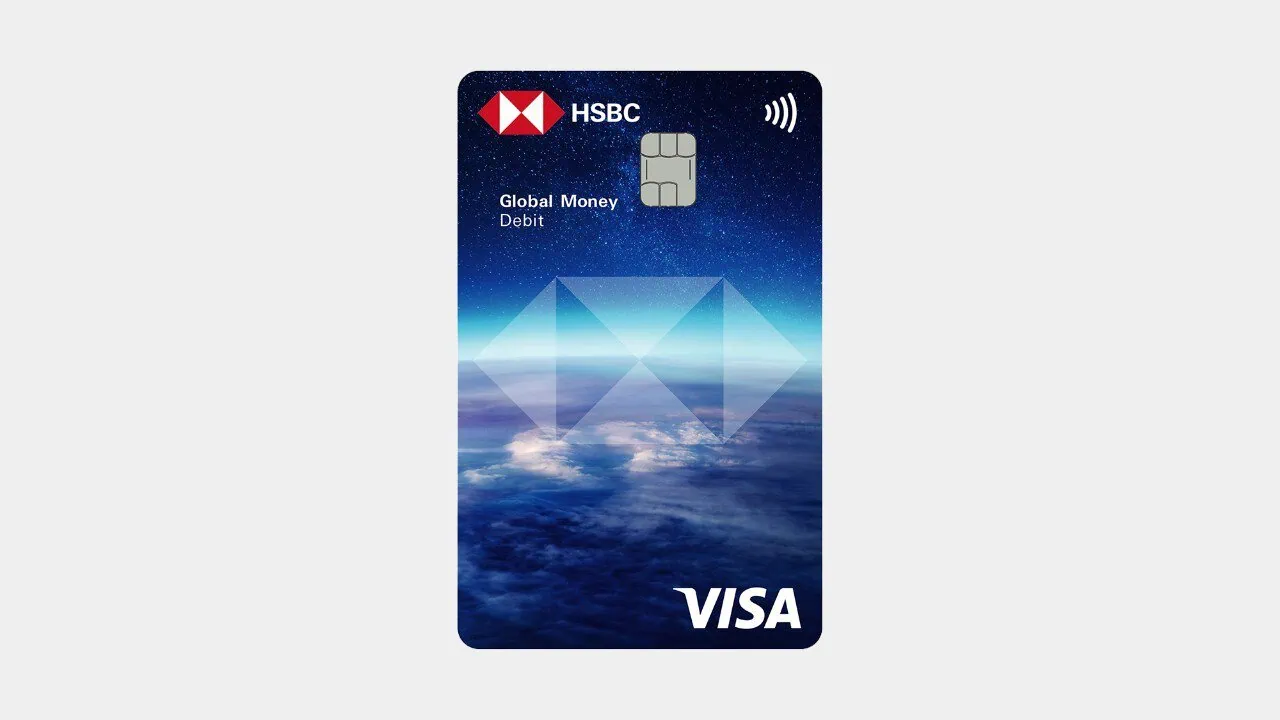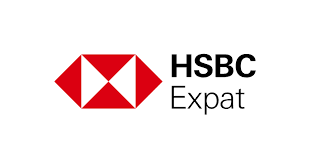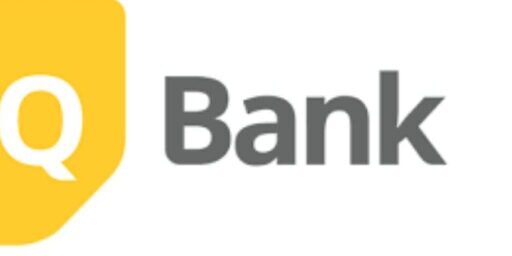HSBC Expat Bank Account for Canadians Abroad and Internationals in Canada
HSBC Expat Review
-
Account Options
-
Multi-Currency Account
-
Multi-Currency Savings
-
Mobile App
-
Fees
-
Ease of Sign Up
-
Customer Service
HSBC Expat Review Summary:
I heard about HSBC Expat from friends of mine who were relocating abroad. They were hard-pressed to find a reliable bank where they could deposit substantial amounts of money, with an easy currency exchange system, allowing them to save in multiple currencies. Almost no bank in the world would onboard customers internationally, let alone a big bank like HSBC.
HSBC turned out to be a very pleasant surprise. It is nothing like the Fintech solutions offered by Wise or Revolut, but rather a full-suite banking solution that provides access to every banking component: multi-currency current accounts, multi-currency savings accounts, investments, financial advisors, debit card, credit card and financing. All through a very intuitive system with a fast-response support.
Pros
- Owned by banking conglomerate HSBC
- Manage savings accounts in multiple currencies
- Competitive interest rates
- Access to many other forms of investments
- Lower-than-most-banks currency exchange fees
- Great platform & Mobile app
- * Sign up from anywhere with any nationality almost (perfect for expats and immigrants)
Cons
- High deposit minimums
- Other options can be cheaper for currency exchange
- Not a Canadian bank
What is HSBC Expat?
HSBC Expat banking is a British-headquartered bank that tailors its services to folks who aren’t living in Canada and seek to manage their finances across multiple currencies – or expats from other countries living in Canada.
If you are living outside of Canada and find yourself wanting to hold currencies from two or more countries where you spend significant time, HSBC Expat might be exactly what you’re looking for.
It’s not just a payment platform like some of the other expat-targeting Fintechs. We are talking about a complete banking suite with one of the world’s biggest banks, which includes multi-currency savings (at fairly good rates), access to its investment centre, as well as multi-currency financing, on top of its international transfer capabilities.
Now you might be thinking – wait didn’t HSBC just get purchased by RBC?
You’re not wrong, but the HSBC that you’re thinking of was the domestic Canadian branch of the company (it’s a massive worldwide bank). HSBC Expat is a completely separate division.
HSBC Expat, also known as HSBC Jersey, is a specialised division of HSBC that caters specifically to the unique banking needs of expatriates and international clients. It primarily serves as an international bank account held in Jersey, Channel Islands.
Jersey is a secure offshore jurisdiction that’s regarded as one of the world’s leading and best-regulated international finance centres by the OECD.
Everyday current accounts are available in GBP, EUR & USD, with a further 16 currency accounts also available to make and receive transfers. Savings accounts are also available in the same currencies.
HSBC Expat offers a range of additional international financial services including savings accounts, international mortgages and investment products.
In other words, if you are no longer residing in Canada, and are interested in holding several currencies – as well as exploring the world off-shore banking – then HSBC Expat is the most stable way to do so.
Minimum Deposit or Salary Requirements
The first thing to understand about HSBC Expat is that it caters to individuals with significant financial resources or higher incomes. After all, it’s unlikely that you’ll be working with multiple currencies if you make less than the average Canadian.
Normally, HSBC Expat account requires you to maintain about $60,000 Canadian Dollars in your account or have a salary of $200,000 a year to become eligible.
We’ve secured an exclusive deal with HSBC Expat – which can get by clicking this link. For a deposit of about $27,000 Canadian Dollars (or £15,000 GBP) you can get access to HSBC Expat’s unique blend of services and advantages.
In terms of nationality, there are no limitations. One of the most interesting things about the HSBC Expat bank account is that it’s open almost globally as long as you qualify for the above criteria.
What is HSBC Expat Global Money Account?
The HSBC Expat Global Money Account is a pretty cool feature of the Expat package – but it can be a bit confusing to understand.
When you open an HSBC Account you get access to two separate types of accounts:
1) The basic vanilla HSBC Expat Account.
2) The HSBC Global Money Account
It’s worth noting the differences.
HSBC Expat Account in GBP, EUR or USD
You can open an HSBC Expat Account in either GBP, EUR or USD.
The ‘offshore’ account is held in Jersey and protected under the Jersey Depositors Compensation Scheme (which is similar to our CDIC insurance).
You should also be eligible for various tax benefits.
Once you’ve opened your Expat Bank Account, you then have access to all of the other tailored services including international mortgages, investments and savings accounts.
I’ll explain more about these later.
For now, the key is that HSBC Expat Accounts are fully-fledged bank accounts.
This means you can deposit cash and cheques, and apply for things like an overdraft.
A multi-currency account from the likes of Wise or OFX is managed through digital accounts, and can only be used to make and receive digital bank transfers.
That leads us on to HSBC’s complete solution.
HSBC Global Money Account
HSBC Expat also offers the ‘Global Money Account’ which allows you to hold and manage funds in 19 different currencies.
This is much more akin to a traditional multi-currency account (like Wise, or Revolut).
The account is only accessible through the HSBC Expat Mobile Banking app, and cheques and cash cannot be directly deposited.
You can easily transfer money between your different currency accounts, and spend from these accounts with the matching Global Money debit card.
That’s one card you can use in over 200 countries and regions worldwide.

Before using your card abroad, you can either prefund the balance you require, or let HSBC automatically convert money from your primary GBP balance each time you make an ATM withdrawal or spend on your card.
You can also generate digital cards and add all of your card details to Apple Pay & Google Pay right away, too.
HSBC is the only mainstream bank that I know of to provide this type of account.
Otherwise you have to look at fintech alternatives that I’ve mentioned earlier, Wise, Revolut or OFX.
So if cutting-edge technology, supplied by a safe legacy bank is your thing, HSBC Expat could be the way to go.
HSBC Expat app
The HSBC Expat app provides a quick and convenient way to manage your accounts on the move.
Key features include the ability to:
- View and manage your multi-currency accounts from anywhere
- Easily initiate and track international money transfers
- Get up-to-date exchange rate information to make informed transfer decisions
- Manage your Global Money debit card for added security
I’ve taken a look at a variety of HSBC Expat reviews on both Android and Apple, and it seems customers are very happy with the app functionality and UI.
HSBC Expat’s Full Array of Services
Once your HSBC Expat account is up and running, you gain access to a range of other international solutions.
A sample of these include:
International Mortgages
Whether you’re planning to invest in property or secure a home for yourself and your family, HSBC Expat’s international mortgage services can help facilitate the process.
HSBC will leverage their global network of local HSBC mortgage teams to connect you to the right person, in the right country.
Investment Products
While I’m not a big fan of the HSBC investment product portfolio, HSBC Expat provides access to a range of investment products through their International Investment Centre.
The costs vary on a per-plan basis.
As a guide, the funds on this platform have an annual management fee of around 1%, while investing in equities normally has a flat per-trade rate (e.g. £14.95 for UK equities).
Savings Accounts
A variety of savings accounts are on offer, including standard saver accounts, through to quarterly bonus accounts, which reward you if no withdrawals are made in the prior three months.
You can also earn interest in 16 different currencies.
NZD – New Zealand dollar
DKK – Danish krone
ZAR – South African rand
SEK – Swedish krona
CHF – Swiss franc
HUF – Hungarian forint
AED – UAE dirham
JPY – Japanese yen
HKD – Hong Kong dollar
NOK – Norwegian krone
CNY – Chinese renminbi
AUD – Australian dollar
THB – Thai baht
PLN – Polish zloty
CAD – Canadian dollar
SGD – Singapore dollar
This is quite a bit more than the three currency savings accounts available through Wise and two through Revolut.
Interest rates are also better than those of mainstream banks, and the more money you deposit, the better the rate is.
Is My Money Safe With HSBC Expat?
Jersey is an international centre for commercial banking due to its unique tax status. It has many of the tax advantages commonly associated with places like Bermuda – but with the long-term stability of the UK banking system to fall back on.
The Depositors Compensation Scheme is the program the legal entity that provides protection for your savings. More than a dozen banks are covered by it.
This DCS coverage is very similar to the automatic CDIC insurance that backs up your Canadian deposits.
But – as with Canadian banks – the DCS coverage is really only the final line of defense. The real bulwark of safety is the fact that HSBC is one of the longest-running and largest banks in the world.
Founded in 1865, it’s older than Canada itself, and has a market cap larger than that of RBC (which would make it not only bigger than any bank in Canada – but the largest company in Canada overall).
Consequently, the chances of HSBC failing to the point that it couldn’t repay depositors are microscopic. With 42 million customers in 62 customers, your deposits are as safe with HSBC as with any bank in the world.
HSBC Expat International Transfers FAQ (Canadian Edition)
With HSBC Expat, you can send 58 currencies to almost anywhere in the world (with a few exceptions like North Korea).
How long does it take to transfer money internationally with HSBC Expat?
The typical processing time for international payments through HSBC Expat is 1 to 3 days. Same as with any other bank.
How much are the HSBC Expat transfer limits?
There’s a daily limit of $500,000 CAD for international payments made through the HSBC Expat Mobile Banking app. For larger transfers, you need to call them.
How much are the HSBC Expat transfer fees?
HSBC Expat has low fees on international transfers and particularly between HSBC accounts (which are fee). They encourage you to make your transfers online with much lower fees than over the phone.
| HSBC Account Type | Transfer to Your Own HSBC Account | Transfer to Another HSBC Account | Transfer to Non-HSBC Account (Online) | Transfer to Non-HSBC Account (Phone) under $430,000 CAD | Transfer to Non-HSBC Account (Phone) over $430,000 CAD |
| HSBC Private Bank | Free | Free | $7.50 CAD | $93 CAD | $17 CAD |
| HSBC Premier | Free | Free | $7.50 CAD | $93 CAD | $17 CAD |
| HSBC Advance | Free | Free | $11 CAD | $93 CAD | $26 CAD |
Are HSBC Exchange Rates Good?
All international transfers with HSBC Expat are conducted at the HSBC exchange rate which includes a margin (similar to any other bank in Canada).
On average, Canadian banks take about 2-2.5% of a transfer, while cheaper options would cost you less than 1% (companies like Wise or Revolut charge between 0.6% and 1% and brokers charge between 0.2%-1.5% depending on the amount).
To sum it up, HSBC’s rates are better than those of Canada’s banks as a whole, and are slightly worse than those offered by new Fintech companies such as Wise or Revolut.
When to Use HSBC Expat?
Apply for an HSBC Expat account if you…
- Meet the criteria of high salary or account balance of $27,000
AND are
- Seeking offshore banking solution
- Looking for a multi currency bank solutions
- Looking for a multi currency card
- Looking to invest in multiple currencies
- Looking for saving accounts in multiple currencies
- Looking for lower fees and better rates on currency exchanges and international transfers
- Valuing the security using a bank that is a part of a huge global financial institution
- Preferring insured accounts over Fintechs for higher safety











Seems like the link to sign up doesn’t give the $27,000 lower threshold when applying